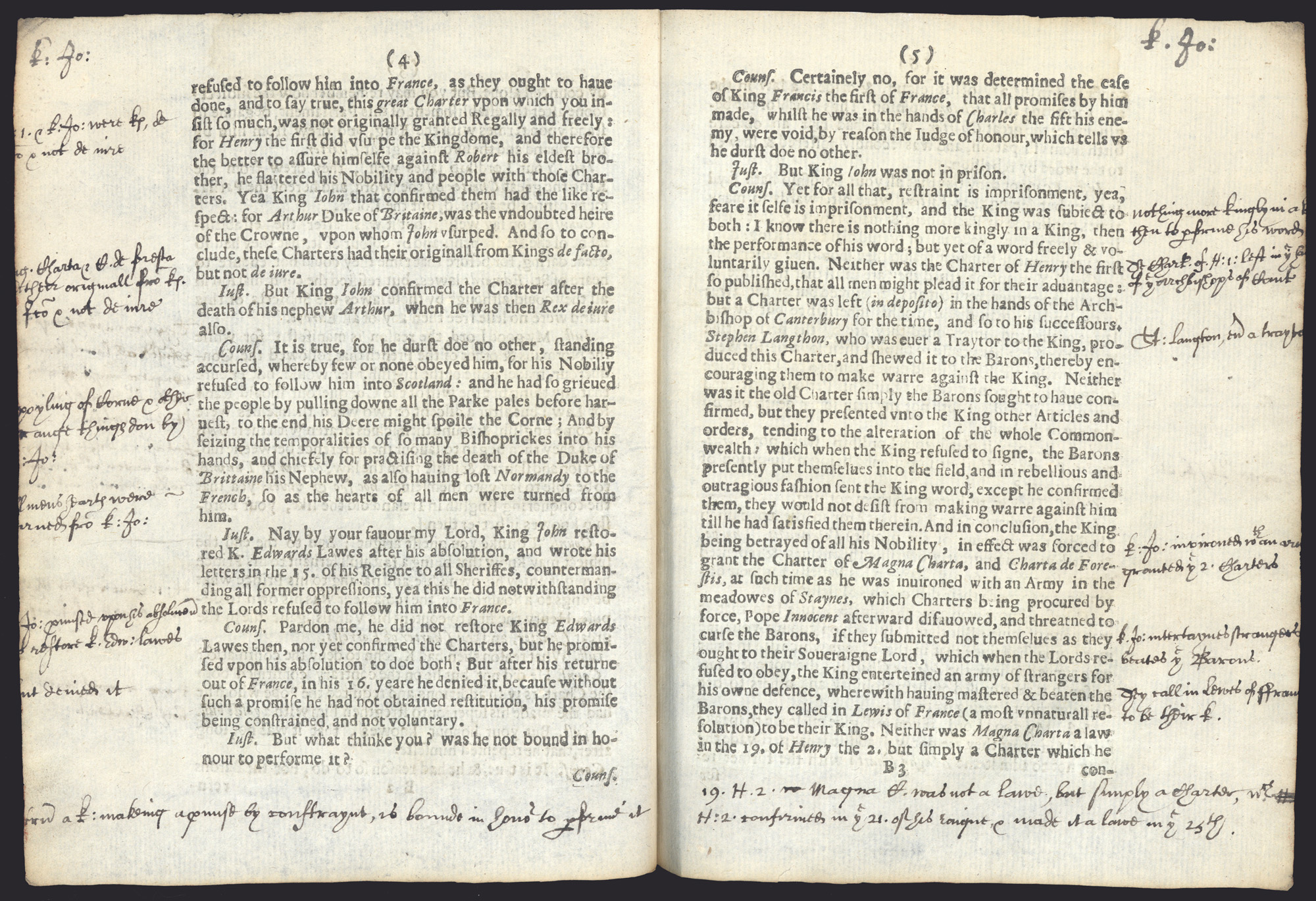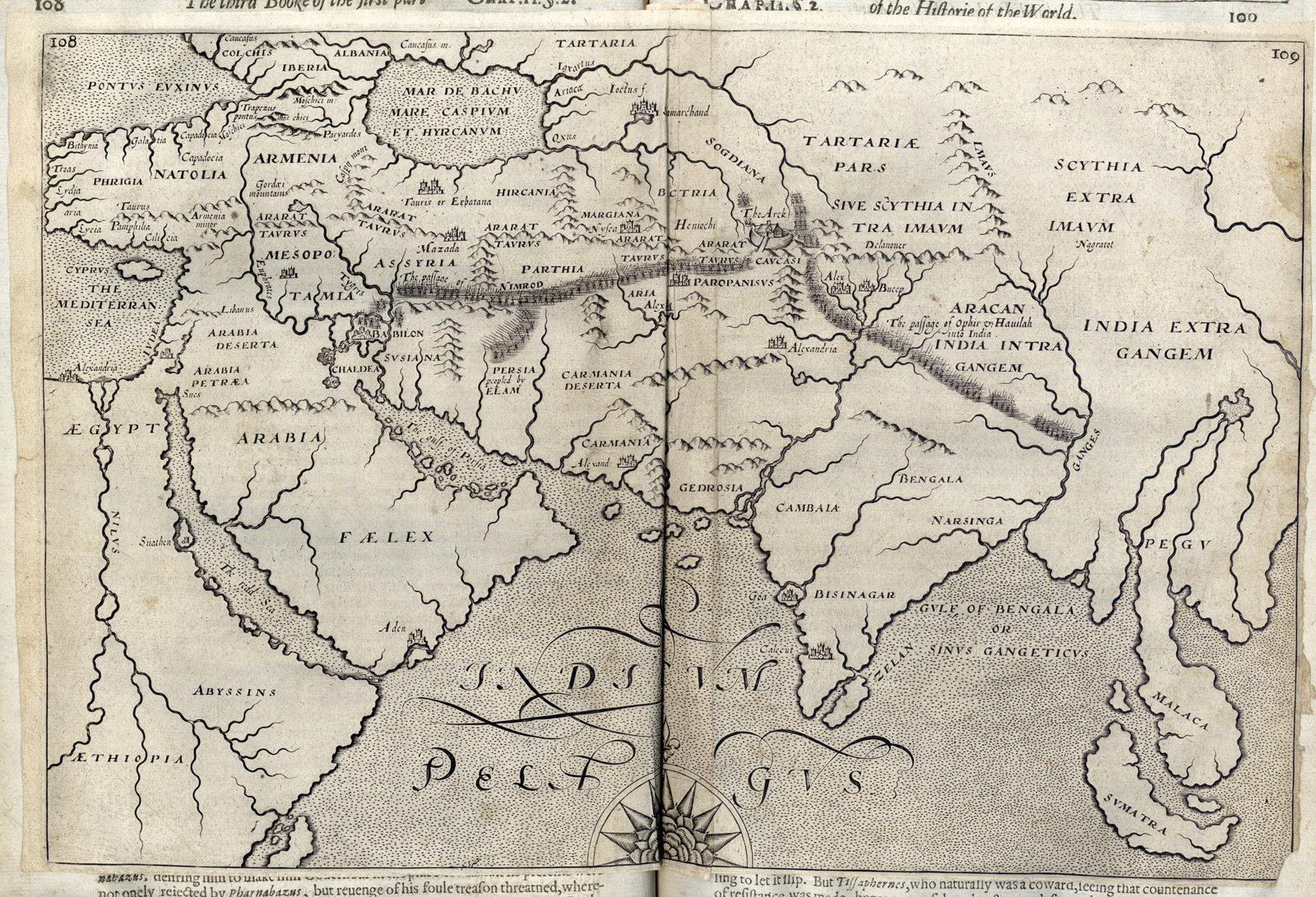The morning of the 29th October marks 400 years since the execution of Sir Walter Raleigh, beheaded at the Palace of Westminster under the auspices of King James I.
Raleigh is perhaps best known in the popular imagination as a courtier and favourite of Queen Elizabeth, and their relationship has often been speculated on and dramatised. Yet Raleigh was also a poet, a writer, a soldier, a sailor, and an adventurer, and embodied the idea of the ‘Renaissance Man’.

A two-page spread from our 1628 copy of Raleigh’s The Prerogative of Parliaments in England, showing extensive annotations by a previous owner [Post-Incunabula, PI 328.42 RAL]
He was also instrumental in England’s early attempts to colonise North America, financing and planning expeditions to the Virginia region throughout the 1580s. The famous ‘Lost Colony’ of Roanoke, where the colonists disappeared with barely a trace, was one of his initiatives. In popular tradition, Raleigh is often attributed to bringing the potato and tobacco to Europe, although there is little historical evidence to suggest this. He did, however, make smoking tobacco popular at court.
As well as sending expeditions to North America, Raleigh was interested in Guiana, in modern-day Guyana and Venezuela. He believed that the fabled ‘El Dorado’ was found there, and that there were mountains of gold to be discovered. He led an expedition there in 1595, but returned to England empty-handed later that year.
After the death of Elizabeth in 1603 and the accession of James I to the throne, Raleigh was arrested for his involvement in the Main Plot against James. He was imprisoned in the Tower of London, where he remained until 1616. It was during his incarceration in the Tower that Raleigh produced most of his prose works.

The title page from our 1652 edition of Raleigh’s The History of the World, showing an engraving of the author. Raleigh wrote the History during his long imprisonment in the Tower of London between 1603-1616. A substantial piece of scholarship, the book mainly deals with Biblical history, and the histories of ancient Greece and Rome [Bradshaw Collection, Bradshaw 930 RAL Folio]
However, on his release from the Tower in 1616, the political landscape had changed, and England’s position was no longer defined by antagonism with Spain. After being pardoned by James, Raleigh led another expedition to Guiana in 1617. His men attacked a Spanish outpost in the area, and Raleigh’s son and namesake Walter was killed in the skirmish. Although they searched for gold, they found none.
When Raleigh returned to England in early 1618, tired and disillusioned, the Spanish ambassador demanded justice for the attack in Guiana. James, eager to avoid a major crisis with Spain, ordered Raleigh’s arrest and execution.
Raleigh was a complex man, living in a complex time. The 400th anniversary of his death provides us with an opportunity to assess his life, works, and legacy.

